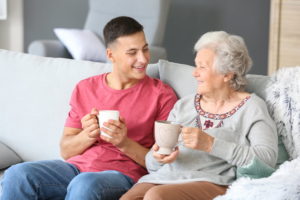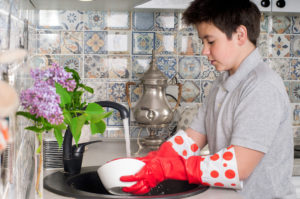We tend to see more men with kidney stones than women; about 1 in 7 men will have a stone in their lifetime. Females experience about half of that. Although interestingly, in the last 10 to 20 years or so, kidney stones in females has been on the rise.
How Do Kidney Stones Form?
Calcium or Uric Acid Build Up
The most common reason is a build up of too much calcium in the urine. About 8 out of 10 types of stones that are formed are calcium stones, and a smaller percentage are what we call uric acid or gout stones.
Chronic Infection
Some kidneys stones are caused by chronic infections, but these are much less common
Other Contributors to Kidney Stones
- Age: As we get older, we’re more prone to get kidney stones. Caucasians have the highest incidence of kidney stone disease of any ethnicity.
- Family history: If someone in your family has or had kidney disease or stones, you’re more likely to develop them.
- Obesity: People who are obese and people who lose weight after bariatric or weight reduction surgery, have a higher incidence of kidney stone disease.
- High-salt diet: When you have too much calcium in your urine it is usually a result of too much sodium in your diet.
Kidney Stone Symptoms
Pain
The most common symptom of kidney stones is abrupt, severe pain. It’s usually felt in your back, or what we call the flanks, although the pain can be felt in a number of different areas, starting from your back, rotating around to the side, going into your groin, and in some cases it actually goes into your genital area. Note again that this pain would be abrupt, severe and may or may not include some blood in the urine.
What to Do if You Think You Have Kidney Stones
If you’re having severe pain, go to either an urgent care or an emergency room to be checked. Providers will likely need to do an X-ray (there are several types of X-rays or scans to diagnose kidney stones) or ultrasound, as well as a urine analysis. A physical exam also provides clues, because you may have a pelvic or bladder infection; or even appendicitis or gallbladder attack that can mimic kidney stones. It’s important to have a good handle on your medical history.
Treating Kidney Stones
Treatment depends on the size of the stone.
Water and Pain Meds for Smaller Stones
Drinking a lot of water and easing the pain are the best ways to deal with smaller stones. If the stone is less than about 5 mm, which is small, it most likely will pass through with urination, along with pain meds and hydration. Hydration will be either orally or through an IV, depending on the severity of dehydration. Finally, on rare occasions we might need to use other meds, like alpha blockers, to help pass those stones.
Surgery May be Needed for Larger Stones
If the stone is greater than about 10 mm, it likely won’t pass on its own, so surgery is the best option. Surgeries include:
- Lithotripsy, where sound waves are used to break up the stones
- Cystoscopy, which goes through the bladder with a small ‘basket’ to break up stones
- Major surgery, where the kidney stone has to be cut out or directly visualized by the surgeon
Home or Hospitalization?
Whether you are treated at home or in the hospital really depends on your degree of pain. If you can drink water and take your pain meds without nausea or vomiting, you can wait it out at home – again, taking your meds and drinking a lot of water.
But if you are vomiting or having severe nausea, which can be very common with stone disease, then you’ll likely be hospitalized.
Preventing Kidney Stones
Hydrate
I tell my patients to think about it like this: Say you’re putting sugar into iced tea. If you use too much sugar, it all falls to the bottom and the only way to get it back is to put in more tea. Well that’s what happens with urine. You get too much unwanted stuff in the urine and it falls to the bottom, and forms crystals and stones.
How much water? We want people to hydrate to the point where their urine is pale yellow. The exact amount of water is individual; we can’t tell someone how much water to drink, exactly. But seeing pale yellow urine is a good goal. If you are someone with a lot of kidney stones, you may even have to get up in the middle of the night to drink water, because during the night is the longest time you go without liquid, and that’s when your urine becomes most concentrated and can potentially form a stone.
Eat Less Salt
As I mentioned earlier, excessive salt intake is the most common reason why people get stones. Salt affects other components of urine, like uric acid and other minerals, causing crystals and stones to form. I’m a very strong proponent of the D-A-S-H (Dietary Approaches to Stop Hypertension) diet, which has been shown to decrease the incidence of stone disease as well as reduce blood pressure. The National Institutes of Health did studies on this diet dating back to the 1990s; it’s been very good for lowering blood pressure as well as preventing kidney stones.

Dr. Leslie Spry, MD FACP FASN FNKF
Dr. Leslie Spry is a Nephrologist with Lincoln Nephrology and Hypertension.









